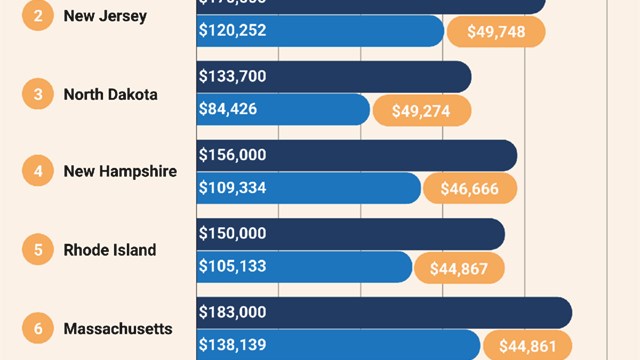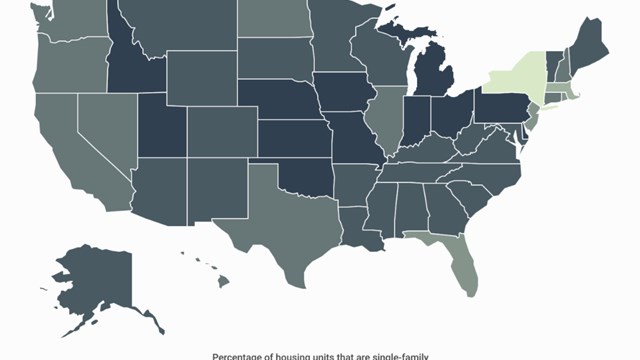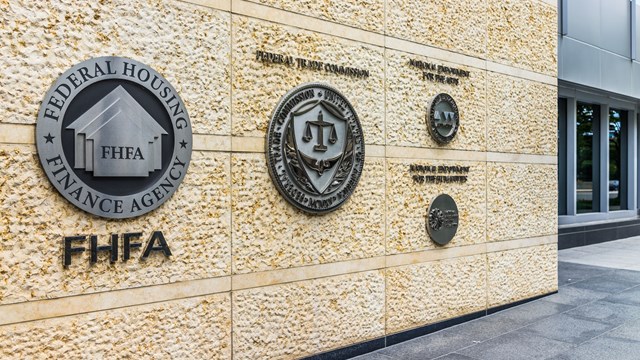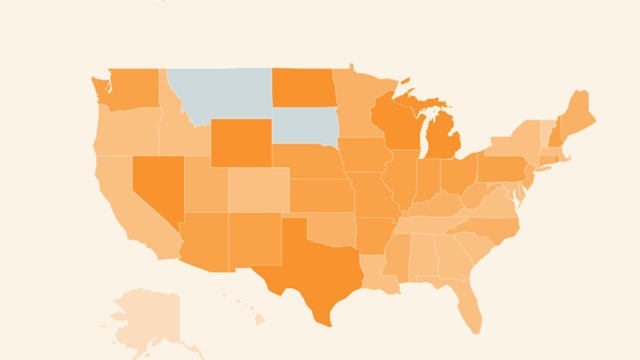
The 2015-16 New York State Legislative season is here, and on the table are many housing-related bills, many of which directly impact co-op and condo board members, managers and residents. Housing is also on the agenda in the New York City Council, although the main action is in Albany because most housing-related laws are state laws.
As this article was being written, there were 229 bills before the Assembly that related to housing, many with counterparts in the state Senate. Some were specifically for rental housing. Some only dealt with one geographic area—for example, two addressed “towns in the Peconic Bay area.” Others (many of which are designed to help senior citizens) could apply to both rentals and co-op/condos.
Housing Bills
If you narrow your online search criteria for current bills to “condo” you’ll find 37 items. Many of these relate to important issues for both condos and co-ops. For example, A01855 would create the official position of cooperative or condominium ombudsman. AO3513, sponsored by Assembly Speaker (and head of the Housing Committee) Keith Wright would create a “bill of rights” for co-op and condo owners.
A00311, sponsored by Assemblyman Jeffrey Dinowitz (D-81, Riverdale/Kingsbridge), would require that the board of a converted co-op or condo be comprised of members selected by the shareholders or unit owners - not the sponsor. And bill S03818 would provide that the assessed values of co-op and condo units won’t increase by more than 3 percent in the two years after resolution of tax certiorari proceedings.
A search for “co-ops,” brings up only four bills. Two deal with bedbug infestation in units; the other two would prohibit warehousing. Using a search for “cooperatives,” not all the bills deal with housing, since that word is used in variety of meanings. If one searches the City Council website for “housing” bills, 19 initiatives turn up, but none specifically tagged for “condos,” “condominiums,” “co-ops” or “cooperatives.”
Short-Term Rentals Means Short Fuses
There’s one hot topic related to all multifamily housing—not just co-ops and condos—that has definitely made its presence known in the City Council. That’s the issue of short-term rentals or homesharing services like Airbnb that cater mainly to tourists. In some co-ops, shareholders have been evicted for renting their units to tourists through these services for short periods of time, in contradiction of the co-op rules.
According to news sources, at a contentious, eight-hour hearing before the City Council in January, critics, including elected officials, slammed Airbnb and companies like it, saying short-term rentals are turning some multifamily buildings into illegal hotels. David Hantman, a spokesman for Airbnb, said at the hearing that the firm tries to educate those who use the service about local laws, and insisted that most people who rent out their apartments do so only occasionally, like when they’re on vacation.
According to Attorney General Eric Schneiderman, the state’s multiple dwelling law makes it illegal for a resident to rent out his entire apartment or house for less than 30 days. Last year, Schneiderman estimated that more than two-thirds of short-term listings in the city were illegal. While Hantman contested this high number, he said Airbnb doesn’t research which listings might be illegal—a comment that didn’t please most of those at the hearing.
Many of those in the city’s co-op and condo community share the attendees' misgivings. Steven Spinola, president of the Real Estate Board of New York (REBNY), pointed out that hotels are held to higher safety standards than permanent multifamily dwellings, and he says that: “circumventing these laws for personal gain should not be encouraged. We also question the appropriateness of permitting various people transient, hotel-like access in residential buildings where others have legally purchased or rented.”
Greg Carlson, executive director of the Federation of New York Housing Cooperatives and Condominiums (FNYHC), says, “We are fundamentally against the likes of Airbnb. The guests for the fee are not vetted by the board and are unfamiliar with any safety aspect of the building.” Still, he says, “It is very important that each cooperative and condominium set up its own policy about guests.”
Mary Ann Rothman, executive director of the Council of New York Cooperatives and Condominiums (CNYC), also says it’s important that if there’s any new legislation, boards should negotiate to make sure they have the right to set their own policy. Airbnb-type arrangements, she said, “may be OK if the host [of the unit] is present”—for example, if only one room is being rented out and the owner/shareholder is there to supervise.
Affordable Housing
One of the causes that Mayor Bill de Blasio is most passionate about is affordable housing. Last year, he presented an ambitious, $41 billion “Housing New York: A Five Borough, Ten-Year Plan.” Among the elements of the plan is the creation of 200,000 affordable units over 10 years (in both existing and new construction), programs targeted to a wide range of incomes, preservation of existing affordability, identifying communities with opportunities for more housing, and streamlining the development and construction processes by overhauling outdated regulations. The mayor also called for an additional 160,000 market-rate units.
So far, the response from the city’s housing community has been positive, although observers are still waiting for specifics. ‘The administration has not yet announced what the new affordable housing requirements in rezoned areas will be,” says Spinola, “and we look forward to a realistic plan that takes into account land prices, construction costs, taxes and market conditions which have made housing construction throughout the city so difficult.”
“The jury,” says Carlson, “is still out on the mayor, but in the general sense we all approve of his concept of affordable housing. It's the 'How To' that will be important.”
Rothman hopes de Blasio will incorporate the co-op model of housing into his affordable housing plans. Co-ops, she says, are a boon to middle- and lower-income people: “They’re friendly, clean, affordable, and foster a sense of community and pride in ownership.”
Intro 188 and Its Fate
In the City Council, one of the most contentious bills of the past few years was Intro 188, which would have mandated that co-op boards decide on applications for residence within 45 days—and if the applicant was rejected, every board member who participated in the process would have to submit a certified statement that the board did not discriminate against any known protected class.
This bill, which died in 2013, was opposed by many housing groups on the grounds that it would take decision-making power away from boards—although some considered it an improvement over an earlier bill that would have made co-op boards give the reason why an application was denied. Carlson says, “As far as the city’s former Intro 188, it has been quiet, and I do not want to awake the beast.”
However, even though the issue may be dormant in the City Council, as this article was being written a similar bill, A01120, had been introduced in the state Assembly. Only time will tell if it gains more traction than its predecessor.
Bills and Issues They’re Following
Organizations such as FNYHC, REBNY, CNYC and others all follow particular bills that are of interest to their memberships, as well as overall issues affecting housing in general.
REBNY is putting housing construction and preservation on its front burner. “Building more new market-rate and affordable housing, and preserving and enhancing our current inventory of affordable housing is the only way to address our decades-long housing shortage,” says Spinola. “Without bold initiatives, the city’s housing market will tighten further and become even more expensive. Our industry stands ready to work with the mayor and other stakeholders to put shovels in the ground and cranes in the sky.”
Rothman says the most important goal in Albany is the need to renew the tax abatement program for co-ops and condos. Without this, she says, buildings will see a significant increase in their property taxes, which will be passed on to residents in the form of increased maintenance fees. It’s important, she adds, for the City Council to pass a “home rule” message as well.
Also high on Rothman’s list of important issues is one in the federal arena. In the wake of Hurricane Sandy, she says, bureaucratic rules hamstrung FEMA representatives when it came to making grants to co-op and condo corporations for damages to common areas and infrastructure. Although the corporations can apply for Small Business Administration (SBA) loans to make repairs and infrastructure upgrades, this problem has affected many co-ops and condos in the New York City area, particularly along the shoreline.
“Congressman Steve Israel (D-3, Queens-Nassau-Suffolk) has introduced a bill that would make co-ops and condos eligible for FEMA emergency grants,” says Rothman. However, she said, the bill’s supporters are having a hard time finding sponsors outside of New York, New Jersey and Maryland—in other words, outside the area hardest-hit by the storm, or likely to be hit by future ones.
Not all housing advocacy groups are citywide or statewide; some are strictly local. One such group is the Presidents Co-op/Condo Council, mainly representing co-ops in eastern Queens. Bob Friedrich, president of the group, says he wants an “8-30 solution” to the issue of high property taxes. This would limit increases in valuation to 8 percent per year, or 30 percent for a five-year period.
Friedrich is also protesting the fact that the upper limit for co-op and condo units eligible for the J51 tax abatement was lowered from an assessed value of $40,000 assessed valuation to an assessed value of $30,000. “A lot of middle-class co-ops are no longer eligible,” he says. He wants to restore the $40,000 limit.
One of the main issues that troubles both Friedrich’s Queens group and co-op owners in Kingsbridge and Riverdale is what Assemblyman Dinowitz, who represents those areas, terms “The lack of tax equity between Class 1 and Class 2 properties—that is, between most privately owned houses and most co-ops and condos. Currently, Class 2 properties do not have the same caps on assessment value increases as Class 1 properties, causing many Class 2 property owners to face much higher tax rates.” Dinowitz also says that the city-mandated transition from Number 6 heating oil to cleaner fuels means additional costs for co-op and condo owners, although in the long run it will improve the city’s air quality.
Dawn Carpenter, former president of the Greater New York Chapter of the Institute of Real Estate Managers (IREM) and secretary/treasurer of the New York State Association of Realtors (NYSAR), lists several measures in Albany that NYSAR supports. “NYSAR and IREM are both members of the national association and mirror each other in thought regarding regulatory issues that will affect private property rights of the consumer and also the industry as a whole.”
According to Carpenter, among the bills that the groups support are A1120, Transparency and Disclosure in Co-operative Housing, which would “bring greater transparency to the process of considering the sale of share in a cooperative housing corporation,” A03209-S 543, Scaffold Law Reform, which would “establish a comparative negligence standard for claims under Labor Law 240 and 241,” A 1435, Vested Rights for Property Owners, which would limit municipalities’ ability to alter local codes, laws, ordinances, rules and regulations during the course of local development projects and S 2587, Tax Credit for Installation of Fire Sprinkler Systems.
Making Their Voices Heard
How do organizations like the above-mentioned ones and other housing advocates represent their memberships and the community as a whole before the legislators?
“Our most effective asset is our membership,” says Rothman. When CNYC takes a stand on a legislative issue, it encourages its individual members to call the “powers that be.” It’s much more effective, she says, than if just one officer of the group makes a call.
“City co-op/condo residents are just like any other residents,” says Carlson. “They only focus on issues that affect them. That is why organizations like the Federation keep them up to date and fight for their rights.”
IREM’s national Legislative Division, according to the organization’s website, monitors legislative activity in the states to provide chapters with the resources they need to build a legislative presence and to make their opinions known on issues affecting their membership.
As for REBNY, its leaders have often met with legislators, including the mayor and Governor Cuomo, to express their concerns.
Realtors, apartment managers, co-op and condo board members, unit owners, shareholders and renters all have their own agendas, some of which overlap and some of which don’t. But wherever legislators get together to discuss their agenda, organizations representing these interests will be there, expressing the interests of their members.
Raanan Geberer is a freelance reporter and editor and a frequent contributor to The Cooperator.









Leave a Comment